morphine
Skip to the navigationPronunciation: MOR feen
Brand: AVINza, Kadian, MS Contin
Avinza 120 mg
capsule, blue/white, imprinted with AVINZA, 120mg 508
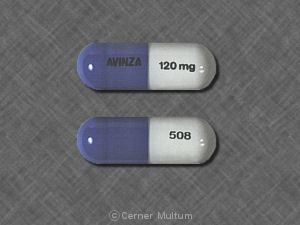
Avinza 30 mg
capsule, white/yellow, imprinted with AVINZA, 30 mg 505
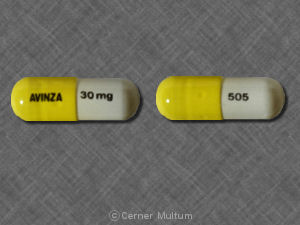
Avinza 45 mg
capsule, blue/white, imprinted with AVINZA, 45 MG 509
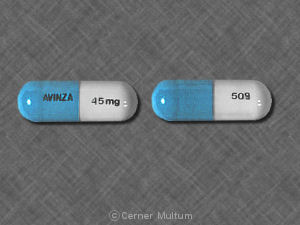
Avinza 60 mg
capsule, blue/white, imprinted with AVINZA, 60 mg 506
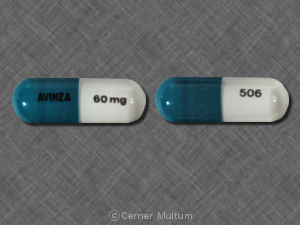
Avinza 90 mg
capsule, red/white, imprinted with AVINZA, 90 mg 507
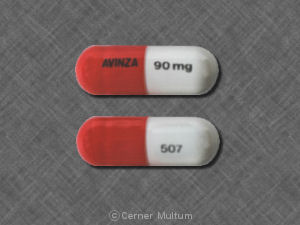
Kadian 100 mg
capsule, green, imprinted with KADIAN, 100 mg
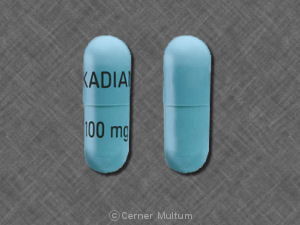
Kadian 30 mg
capsule, blue, imprinted with KADIAN, 30 mg
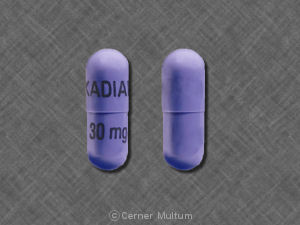
Kadian 50 mg
capsule, blue, imprinted with KADIAN, 50 mg
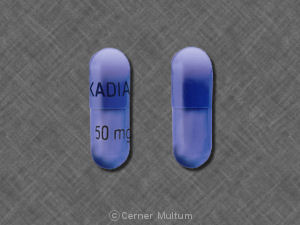
Kadian 60 mg
capsule, pink, imprinted with KADIAN, 60 mg

Kadian 80 mg
capsule, orange, imprinted with KADIAN, 80 mg

Morphine 100 mg ER-MAL
round, gray, imprinted with 100, M inside square

Morphine 15 mg ER-MAL
round, blue, imprinted with 15, M inside square

Morphine 15 mg-ROX
round, white, imprinted with 54 733

Morphine 200 mg ER-MAL
oblong, green, imprinted with 200, M inside square

Morphine 30 mg ER-MAL
round, purple, imprinted with 30, M inside square

Morphine 30 mg-ROX
round, white/blue specks, imprinted with 54 262

Morphine 60 mg ER-MAL
round, orange, imprinted with 60, M inside square

Morphine IR 15 mg-ETH
round, brown, imprinted with 15, ETH

Morphine IR 30 mg-ETH
oblong, brown, imprinted with 30, ETHEX

Morphine Sulfate ER 100 mg-UPS
capsule, green, imprinted with UPSHER-SMITH 0233, 100 mg

Morphine Sulfate ER 20 mg-UPS
capsule, yellow, imprinted with UPSHIRE-SMITH 0226, 20 mg

Morphine Sulfate ER 30 mg-UPS
capsule, purple, imprinted with UPSHER-SMITH 0227, 30 mg
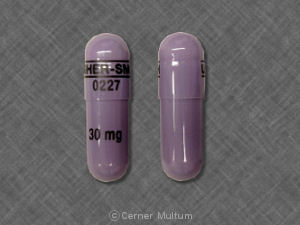
Morphine Sulfate ER 60 mg-UPS
capsule, pink, imprinted with UPSHER-SMITH 0229, 60 mg

MS Contin 100 mg
round, gray, imprinted with PF, 100

MS Contin 30 mg
round, pink, imprinted with PF, M 30

What is the most important information I should know about morphine?
You should not take this medicine if you have severe asthma or breathing problems, a blockage in your stomach or intestines, or a bowel obstruction called paralytic ileus.
Morphine can slow or stop your breathing, and may be habit-forming. Use only your prescribed dose, and swallow an extended-release pill whole to avoid a potentially fatal dose. Never share morphine with another person.
MISUSE OF NARCOTIC MEDICINE CAN CAUSE ADDICTION, OVERDOSE, OR DEATH, especially in a child or other person using the medicine without a prescription.
Morphine may cause life-threatening withdrawal symptoms in a newborn if the mother has taken this medicine during pregnancy.
Do not drink alcohol. Dangerous side effects or death could occur.
What is morphine?
Morphine is an opioid pain medication. An opioid is sometimes called a narcotic.
Morphine is used to treat moderate to severe pain. Short-acting morphine is taken as needed for pain.
The extended-release form of morphine is for around-the-clock treatment of pain, . This form of morphine is not for use on an as-needed basis for pain.
Morphine is not for treating short-term pain just after surgery unless you were already taking morphine before the surgery.
Morphine may also be used for purposes not listed in this medication guide.
What should I discuss with my healthcare provider before using morphine?
You should not take this medicine if you have ever had an allergic reaction to morphine or other narcotic medicines, or if you have:
- severe asthma or breathing problems;
- a blockage in your stomach or intestines; or
- a bowel obstruction called paralytic ileus.
Do not use morphine if you have used an MAO inhibitor in the past 14 days. A dangerous drug interaction could occur. MAO inhibitors include isocarboxazid, linezolid, methylene blue injection, phenelzine, rasagiline, selegiline, tranylcypromine, and others.
Some medicines can interact with morphine and cause a serious condition called serotonin syndrome. Be sure your doctor knows if you also take medicine for depression, mental illness, Parkinson's disease, migraine headaches, serious infections, or prevention of nausea and vomiting. Ask your doctor before making any changes in how or when you take your medications.
To make sure morphine is safe for you, tell your doctor if you have:
- any type of breathing problem or lung disease;
- a history of head injury, brain tumor, or seizures;
- a history of drug abuse, alcohol addiction, or mental illness;
- urination problems;
- liver or kidney disease;
- problems with your gallbladder, pancreas, or thyroid; or
- if you use a sedative like Valium (diazepam, alprazolam, lorazepam, Ativan, Klonopin, Restoril, Tranxene, Versed, Xanax, and others).
It is not known whether this medicine will harm an unborn baby. If you use morphine while you are pregnant, your baby could become dependent on the drug. This can cause life-threatening withdrawal symptoms in the baby after it is born. Babies born dependent on habit-forming medicine may need medical treatment for several weeks. Tell your doctor if you are pregnant or plan to become pregnant.
Morphine can pass into breast milk and may harm a nursing baby. Tell your doctor if you are breast-feeding a baby.
How should I use morphine?
Follow all directions on your prescription label. Morphine can slow or stop your breathing, especially when you start using this medicine or whenever your dose is changed. Never use morphine in larger amounts, or for longer than prescribed. Tell your doctor if the medicine seems to stop working as well in relieving your pain.
Morphine may be habit-forming, even at regular doses. Never share this medicine with another person, especially someone with a history of drug abuse or addiction. MISUSE OF NARCOTIC MEDICINE CAN CAUSE ADDICTION, OVERDOSE, OR DEATH, especially in a child or other person using the medicine without a prescription. Selling or giving away morphine is against the law.
Always check your bottle to make sure you have received the correct pills (same brand and type) of medicine prescribed by your doctor. Ask the pharmacist if you have any questions about the medicine you receive at the pharmacy.
Stop taking all other around-the-clock narcotic pain medications when you start taking morphine.
Do not crush, chew, or break an extended-release tablet. Swallow it whole to avoid exposure to a potentially fatal dose.
To make swallowing easier, you may open the Avinza capsule and sprinkle the medicine into a spoonful of applesauce. Swallow right away without chewing. Do not save the mixture for later use.
Measure liquid medicine with a special dose-measuring spoon or medicine cup, not with a regular table spoon. If you do not have a dose-measuring device, ask your pharmacist for one.
Take the medicine at the same time each day.
Do not stop using morphine suddenly, or you could have unpleasant withdrawal symptoms. Ask your doctor how to safely stop using morphine.
Never crush or break a morphine pill to inhale the powder or mix it into a liquid to inject the drug into your vein. This practice has resulted in death with the misuse of morphine and similar prescription drugs.
Store at room temperature, away from heat, moisture, and light.
Keep track of the amount of medicine used from each new bottle. Morphine is a drug of abuse and you should be aware if anyone is using your medicine improperly or without a prescription.
Do not keep leftover morphine pills or liquid. Ask your pharmacist where to locate a drug take-back disposal program. If there is no take-back program, flush any unused pills or liquid medicine down the toilet.
What happens if I miss a dose?
Morphine is sometimes taken only once per day, and sometimes 2 or 3 times per day. Since morphine is used for pain, you are not likely to miss a dose. If you do miss a dose, take the medicine as soon as you remember. Then take your next dose as follows:
- If you take morphine 3 times per day: Take your next dose 8 hours after taking the missed dose.
- If you take morphine 2 times per day: Take your next dose 12 hours after taking the missed dose.
- If you take morphine 1 time per day: Take your next dose 24 hours after taking the missed dose.
Do not take extra medicine to make up a missed dose. Do not take more than your prescribed dose in a 24-hour period.
What happens if I overdose?
Seek emergency medical attention or call the Poison Help line at 1-800-222-1222. A morphine overdose can be fatal, especially in a child or other person using the medicine without a prescription. Overdose symptoms may include slow breathing and heart rate, severe drowsiness, muscle weakness, cold and clammy skin, pinpoint pupils, and fainting.
What should I avoid while using morphine?
Do not drink alcohol. Dangerous side effects or death can occur when alcohol is combined with morphine.
This medication may impair your thinking or reactions. Avoid driving or operating machinery until you know how morphine will affect you. Dizziness or severe drowsiness can cause falls or other accidents.
What are the possible side effects of morphine?
Get emergency medical help if you have signs of an allergic reaction: hives; difficult breathing; swelling of your face, lips, tongue, or throat.
Like other narcotic medicines, morphine can slow your breathing. Death may occur if breathing becomes too weak.
Call your doctor at once if you have:
- slow heart rate, sighing, weak or shallow breathing;
- chest pain, fast or pounding heartbeats;
- extreme drowsiness, feeling like you might pass out;
- infertility, missed menstrual periods;
- impotence, sexual problems, loss of interest in sex; or
- low cortisol levels -- nausea, vomiting, loss of appetite, dizziness, worsening tiredness or weakness.
Seek medical attention right away if you have symptoms of serotonin syndrome, such as: agitation, hallucinations, fever, sweating, shivering, fast heart rate, muscle stiffness, twitching, loss of coordination, nausea, vomiting, or diarrhea.
Morphine is more likely to cause breathing problems in older adults and people who are severely ill, malnourished, or otherwise debilitated.
Common side effects may include:
- drowsiness, dizziness;
- constipation, stomach pain, nausea, vomiting;
- headache, tired feeling;
- anxiety; or
- mild itching.
This is not a complete list of side effects and others may occur. Call your doctor for medical advice about side effects. You may report side effects to FDA at 1-800-FDA-1088.
What other drugs will affect morphine?
Narcotic (opioid) medication can interact with many other drugs and cause dangerous side effects or death. Be sure your doctor knows if you also use:
- other narcotic medications --opioid pain medicine or prescription cough medicine;
- drugs that make you sleepy or slow your breathing --a sleeping pill, muscle relaxer, sedative, tranquilizer, or antipsychotic medicine; or
- drugs that affect serotonin levels in your body --medicine for depression, Parkinson's disease, migraine headaches, serious infections, or prevention of nausea and vomiting.
This list is not complete. Other drugs may interact with morphine, including prescription and over-the-counter medicines, vitamins, and herbal products. Not all possible interactions are listed in this medication guide.
Remember, keep this and all other medicines out of the reach of children, never share your medicines with others, and use this medication only for the indication prescribed.
Every effort has been made to ensure that the information provided by Cerner Multum, Inc. ('Multum') is accurate, up-to-date, and complete, but no guarantee is made to that effect. Drug information contained herein may be time sensitive. Multum information has been compiled for use by healthcare practitioners and consumers in the United States and therefore Multum does not warrant that uses outside of the United States are appropriate, unless specifically indicated otherwise. Multum's drug information does not endorse drugs, diagnose patients or recommend therapy. Multum's drug information is an informational resource designed to assist licensed healthcare practitioners in caring for their patients and/or to serve consumers viewing this service as a supplement to, and not a substitute for, the expertise, skill, knowledge and judgment of healthcare practitioners. The absence of a warning for a given drug or drug combination in no way should be construed to indicate that the drug or drug combination is safe, effective or appropriate for any given patient. Multum does not assume any responsibility for any aspect of healthcare administered with the aid of information Multum provides. The information contained herein is not intended to cover all possible uses, directions, precautions, warnings, drug interactions, allergic reactions, or adverse effects. If you have questions about the drugs you are taking, check with your doctor, nurse or pharmacist.
Copyright 1996-2017 Cerner Multum, Inc. Version: 11.10. Revision date: 11/10/2016.
